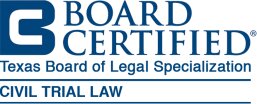Best New Business Formation Lawyers in Houston
Share your needs with us, get contacted by law firms.
Free. Takes 2 min.
List of the best lawyers in Houston, United States
About New Business Formation Law in Houston, United States
Starting a new business in Houston involves a series of legal steps and decisions that are essential for compliance and long-term success. New business formation law covers the process of legally creating a business entity, such as selecting the right structure (LLC, corporation, partnership, or sole proprietorship), registering with appropriate government entities, obtaining permits and licenses, and ensuring the company meets local, state, and federal legal requirements. Given Houston's strong economy and diverse business landscape, understanding the foundational legal steps is crucial for entrepreneurs looking to establish and grow their businesses in the area.
Why You May Need a Lawyer
While some entrepreneurs may choose to navigate business formation on their own, there are several situations where legal help is highly recommended:
- Choosing the best business entity for your specific circumstances
- Drafting and reviewing operating agreements, bylaws, or partnership agreements
- Navigating local licensing and permit requirements
- Handling complex ownership structures or multiple partners
- Addressing intellectual property considerations, such as trademarks or patents
- Preparing for future growth, investment, or sale of the business
- Ensuring compliance with tax requirements
- Managing risk and liability protection for owners and investors
- Resolving disputes among co-founders or business partners
A lawyer can help prevent costly mistakes, ensure all legal documents are properly prepared, and advise on the most advantageous business strategies from a legal standpoint.
Local Laws Overview
Houston businesses are governed by a combination of federal, state, and local laws. Key aspects of local law to consider include:
- Business Structure Compliance - Texas law governs how you can form and operate entities such as LLCs, S and C corporations, limited partnerships, and sole proprietorships. The Texas Secretary of State oversees registration and compliance.
- DBA ("Doing Business As") Requirements - Businesses operating under a name different from the owner's legal name must file an Assumed Name Certificate with Harris County and, in many cases, with the state.
- Local Permitting - The City of Houston requires specific permits and licenses depending on the nature of your business. This may include health, safety, and fire department permits.
- Zoning and Land Use - Houston has unique zoning and land-use rules compared to other large U.S. cities. Although there is no formal zoning code, there are deed restrictions and other local ordinances that may affect where and how you can operate.
- Sales Tax - Texas imposes sales tax collection requirements on most goods and some services. Registration with the Texas Comptroller is needed if applicable.
- Employment Laws - Additional local and state requirements may apply if you plan to hire employees, such as unemployment insurance, worker's compensation (voluntary in Texas), and compliance with wage and hour laws.
Frequently Asked Questions
What type of business entity should I choose for my new business in Houston?
The best entity depends on factors like liability protection, tax treatment, funding needs, and management structure. Common choices in Houston include LLCs, corporations, partnerships, and sole proprietorships. An attorney can help evaluate your situation and recommend the right fit.
Do I have to register my business with the State of Texas?
Most formal business entities like LLCs and corporations must file formation documents with the Texas Secretary of State. Sole proprietors and general partnerships do not usually have to register with the state, but may need to file an Assumed Name Certificate locally.
What licenses or permits do I need to operate in Houston?
It depends on your industry. Common requirements include a sales tax permit from the Texas Comptroller, city permits for food service or health-related businesses, and various occupational licenses. Always check with the City of Houston and Harris County for specific requirements.
Is there zoning in Houston?
Houston does not have traditional zoning laws, but land-use regulations, building codes, and deed restrictions still apply. These control how properties can be used and may affect your business location.
What are the costs involved in forming a business?
Costs vary based on the entity chosen but generally include state filing fees, local filing fees, and any attorney charges for preparing formation documents. Additional costs may include permits, licenses, and insurance premiums.
Do I need an attorney to form a business?
While you are not legally required to use a lawyer to form a business, legal counsel can help ensure compliance and avoid future disputes, especially if your business will have multiple owners, investors, or a complex structure.
Can I operate my business from home in Houston?
Home-based businesses are allowed in many cases, but local ordinances and deed restrictions may impose limitations. Certain activities, such as those increasing traffic or involving hazardous materials, are more strictly regulated.
How do I protect my business name in Houston?
Register your business name with the appropriate local and state agencies. For added protection, consider applying for a trademark at the state or federal level, depending on your business scope.
What tax obligations will I have as a new business owner?
Most businesses must collect and remit state sales tax, pay franchise taxes, and comply with federal tax requirements. Employers have additional obligations. Consulting a tax advisor or attorney is recommended.
What should I include in my business formation documents?
Essential elements include ownership structure, management roles, decision-making processes, dispute resolution provisions, and procedures for adding or removing owners. These can be customized in an operating agreement or bylaws.
Additional Resources
Several resources can assist with new business formation in Houston:
- Texas Secretary of State - Oversees business entity registration and regulates state compliance requirements
- Houston Business Solutions Center - Provides business counseling, permits information, and startup resources for local entrepreneurs
- Texas Comptroller of Public Accounts - Handles sales tax permits and state tax obligations
- Harris County Clerk’s Office - Processes Assumed Name Certificates (DBA filings) for businesses operating under a trade name
- Houston Public Library - Offers research tools and workshops on business planning and legal issues
- SCORE Houston - Free mentoring and workshops for small business owners, including legal basics for startups
- Small Business Administration (SBA) Houston District Office - Offers guides, templates, and referrals for new businesses
Next Steps
If you are planning to start a business in Houston, consider the following steps:
- Research the appropriate business structure that fits your needs
- Prepare and file the necessary formation documents with the Texas Secretary of State or local agency
- Secure all relevant licenses and permits from city, county, and state authorities
- Draft comprehensive internal documents, such as an operating agreement or bylaws
- Consult with a qualified business attorney to review your documents and ensure compliance
- Set up your accounting, tax registration, and insurance policies
- Utilize local resources and professional organizations for ongoing support and education
Seeking legal advice early in the process can save time, protect your interests, and provide peace of mind as you launch and grow your business in Houston.
Lawzana helps you find the best lawyers and law firms in Houston through a curated and pre-screened list of qualified legal professionals. Our platform offers rankings and detailed profiles of attorneys and law firms, allowing you to compare based on practice areas, including New Business Formation, experience, and client feedback.
Each profile includes a description of the firm's areas of practice, client reviews, team members and partners, year of establishment, spoken languages, office locations, contact information, social media presence, and any published articles or resources. Most firms on our platform speak English and are experienced in both local and international legal matters.
Get a quote from top-rated law firms in Houston, United States — quickly, securely, and without unnecessary hassle.
Disclaimer:
The information provided on this page is for general informational purposes only and does not constitute legal advice. While we strive to ensure the accuracy and relevance of the content, legal information may change over time, and interpretations of the law can vary. You should always consult with a qualified legal professional for advice specific to your situation.
We disclaim all liability for actions taken or not taken based on the content of this page. If you believe any information is incorrect or outdated, please contact us, and we will review and update it where appropriate.















